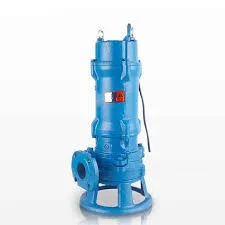English
- Afrikaans
- Albanian
- Amharic
- Arabic
- Armenian
- Azerbaijani
- Basque
- Belarusian
- Bengali
- Bosnian
- Bulgarian
- Catalan
- Cebuano
- Corsican
- Croatian
- Czech
- Danish
- Dutch
- English
- Esperanto
- Estonian
- Finnish
- French
- Frisian
- Galician
- Georgian
- German
- Greek
- Gujarati
- Haitian Creole
- hausa
- hawaiian
- Hebrew
- Hindi
- Miao
- Hungarian
- Icelandic
- igbo
- Indonesian
- irish
- Italian
- Japanese
- Javanese
- Kannada
- kazakh
- Khmer
- Rwandese
- Korean
- Kurdish
- Kyrgyz
- Lao
- Latin
- Latvian
- Lithuanian
- Luxembourgish
- Macedonian
- Malgashi
- Malay
- Malayalam
- Maltese
- Maori
- Marathi
- Mongolian
- Myanmar
- Nepali
- Norwegian
- Norwegian
- Occitan
- Pashto
- Persian
- Polish
- Portuguese
- Punjabi
- Romanian
- Russian
- Samoan
- Scottish Gaelic
- Serbian
- Sesotho
- Shona
- Sindhi
- Sinhala
- Slovak
- Slovenian
- Somali
- Spanish
- Sundanese
- Swahili
- Swedish
- Tagalog
- Tajik
- Tamil
- Tatar
- Telugu
- Thai
- Turkish
- Turkmen
- Ukrainian
- Urdu
- Uighur
- Uzbek
- Vietnamese
- Welsh
- Bantu
- Yiddish
- Yoruba
- Zulu
Telephone: +86 13120555503
Email: frank@cypump.com
Sep . 08, 2024 06:34 Back to list
High-Quality Sewage Grinding Pumps for Efficient Waste Management
Understanding Sewage Grinding Pumps An Essential Component for Waste Management
Sewage grinding pumps play a critical role in modern waste management systems, particularly in residential and commercial applications where gravity drainage is not feasible. These specialized pumps are designed to handle the disposal of wastewater that contains solid waste, which is often a challenge for conventional sewage pumps. By utilizing advanced grinding technology, these pumps can effectively reduce the size of solid particles, ensuring a smooth flow through the plumbing system.
The operation of a sewage grinding pump involves a unique chopping mechanism that grinds solid waste into smaller particles before it is pumped away. This feature is essential for preventing clogs in pipes, which can lead to costly repairs and inefficient waste disposal. The design typically includes a powerful motor and sharp blades that can accommodate various types of solids, such as food waste, paper, and other debris often found in sewage.
One of the primary advantages of using a sewage grinding pump is its ability to work in areas with low sewage lines. Many rural and suburban locations lack a direct sewage line connection, necessitating the installation of these pumps to transport waste to a suitable treatment facility. Additionally, they are invaluable in basement installations where gravity drainage is not an option. By grinding waste into a manageable slurry, these pumps can easily navigate through smaller pipes and travel longer distances, if necessary.
sewage grinding pump

When selecting a sewage grinding pump, several factors need to be considered. Firstly, the pump's capacity must match the expected volume of wastewater. Factors such as the number of fixtures being served and the type of waste generated can influence this decision. Furthermore, the pump's horsepower is crucial because it determines its grinding and pumping efficiency. A pump with greater horsepower can handle more demanding applications and reduce the likelihood of jams and breakdowns.
Regular maintenance is critical to ensuring the longevity and efficiency of sewage grinding pumps. This includes periodic inspections, cleaning of filters, and monitoring the motor's performance. Neglecting maintenance can lead to decreased performance and premature failure, resulting in costly downtime and repairs.
In conclusion, sewage grinding pumps are an essential investment for effective waste management, especially in challenging plumbing situations. Their innovative design allows them to handle waste materials that standard pumps cannot, making them indispensable in both residential and commercial settings. By understanding their functionality and maintaining them properly, property owners can ensure a reliable and efficient sewage disposal system.
-
ISG Series Vertical Pipeline Pump - Chi Yuan Pumps Co., LTD.|Advanced Hydraulic Design&Energy-Efficient Solutions
NewsJul.30,2025
-
ISG Series Vertical Pipeline Pump - Chi Yuan Pumps Co., LTD.
NewsJul.30,2025
-
ISG Series Vertical Pipeline Pump - Chi Yuan Pumps Co., LTD.|energy-efficient fluid handling&industrial durability
NewsJul.30,2025
-
ISG Series Vertical Pipeline Pump - Chi Yuan Pumps | Advanced Engineering&Industrial Efficiency
NewsJul.30,2025
-
ISG Series Pipeline Pump - Chi Yuan Pumps | High Efficiency, Energy Saving
NewsJul.30,2025
-
ISG Series Vertical Pipeline Pump-Chi Yuan Pumps|High Efficiency&Reliable Performance
NewsJul.29,2025










